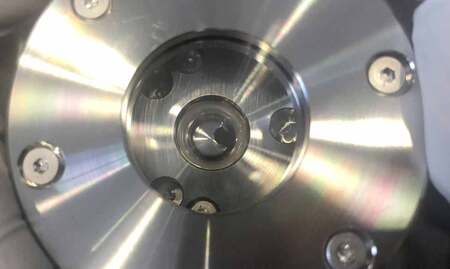Newsfrom Japan
Sep 11, 2025 12:13 (JST)
Tokyo, Sept. 11 (Jiji Press)–A research team led by the University of Tokyo has discovered that the parent celestial body of asteroid Ryugu retained plentiful water for over one billion years after its birth.
The team’s finding, published in British science journal Nature on Thursday, was based on analysis of sand on Ryugu sampled and brought to the Earth by Japan’s Hayabusa2 asteroid probe in 2020.
Ryugu’s parent body, which is believed to have been born around 4.6 billion years ago in the outer solar system, initially contained carbon and water, and past studies have shown that some of the water was absorbed into minerals to form hydrous minerals in the early stages. The remaining water is believed to have evaporated and gone.
Currently, there is almost no water in liquid form on Ryugu, which was formed through the accumulation of fragments from a collision between the parent body and another celestial body.
Tsuyoshi Iizuka, an associate professor at the university, and other researchers of the team tried to find out how old the collected sand was by using radioactive isotopes. To their surprise, the result was that the sand was formed about 4.8 billion years ago, meaning that it was older than the solar system, which is impossible.
[Copyright The Jiji Press, Ltd.]

